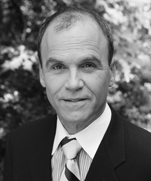5 minutes with... Scott Turow
 When did you decide to become a lawyer? Why?
When did you decide to become a lawyer? Why?
I wasn't happy with life in academia, nor did I feel that writing full-time was good for my mental health. I was intensely curious about the law.
Starting out, what did you expect from a career in the law?
I had no idea. In those days, the catalog at Harvard said the school aimed to teach students to practice law wherever the common law prevailed. After the first week, I turned to a classmate and asked, “What's the common law anyway?” I had no idea what I was in for.
How did you get into the areas of law you are known for today? By design? Chance?
No, I was fascinated by the criminal law always, even before I went to law school. I loved hearing friends who were prosecutors and defense lawyers talk about their work.
What do you consider to have been your big break?
Going to law school. It gave me a profession that has remained a constant source of fascination, and for that reason, a subject I was eager to write about.
What differences do you see in today's legal market compared to when you started?
No changes for the better. Commercial pressures drive far too much in our profession.
“Generally those who thought they were favorably portrayed regarded One L as a discerning literary work. The others were less impressed.”
What achievement are you most proud of?
My kids of course, but I assume you mean as a lawyer. I've had a wonderful roll of the dice as a lawyer. As a prosecutor, I was privileged to have a piece of the successful investigation of corruption in the Cook County judiciary. As a defense lawyer, I had a part in the freeing of Alex Hernandez after 12 years in prison, five on death row, for a murder he did not commit.
What do you consider your greatest failure or regret?
I wish I'd done a judicial clerkship, but at age 29, I was in a hurry to have a real job. I was blessed to work at the elbow of the US Attorney, the legendary Thomas P. Sullivan, who served the same kind of mentorship role for me.
What law would you change, abolish or create?
Without question, I would reverse the line of Supreme Court authorities, starting with Buckley v Valeo and Citizens United, that have led to our current campaign financing mess in which the Supreme Court seems content to let the rich have far more speech than the poor.
Corporations were never intended by the framers to have political rights – what's next, the vote? And there cannot be an unrestricted First Amendment right to spend on political speech – like other kinds of speech, its impact on the political process needs to be considered. No candidate could go to his opponent's rally and use a bullhorn to drown the opponent out.
Who is your legal hero?
I admire many, many lawyers. Tom Sullivan, whom I mentioned earlier, has had an extraordinary life as a lawyer.
What career would you have in your second life?
Been there, done that, love it.
What slogan would you like to be remembered by?
Even when life is good, it isn't easy.
What advice would you give to students trying to enter the legal profession today?
Consider the bleak job prospects first.
And secondly, to those who hope to ultimately get into the areas of law in which you are expert?
Look outside cities for potential jobs as prosecutors.
How was One L received at Harvard when it came out?
I was a 3L and my classmates and professors recognized themselves, despite changed names. Generally those who thought they were favorably portrayed regarded One L as a discerning literary work. The others were less impressed.
How have you managed to juggle a successful writing career with being a successful attorney? Did/do you take time out of the law to write, and if so how supportive was/is your employer?
I haven't practiced full-time since 1990. My partners at the firm known now as Dentons have been fully supportive of my effort to mesh my two careers. I couldn't have continued to practice without their patience.